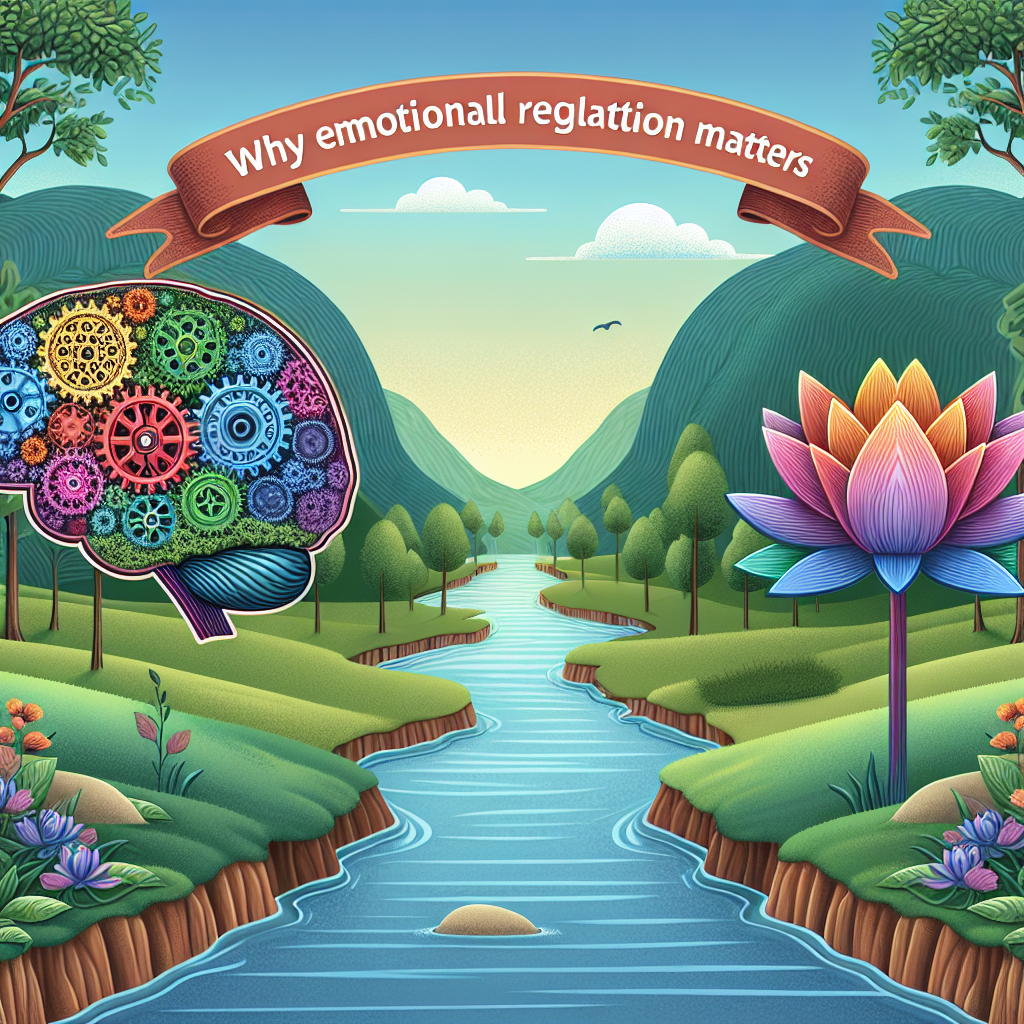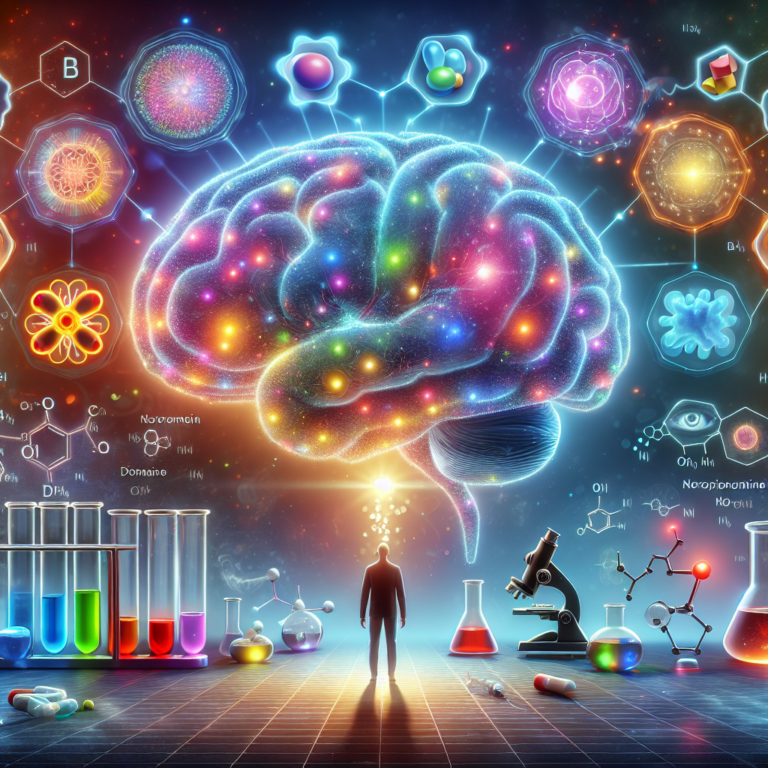
Introduction
In our fast-paced, often chaotic world, emotional regulation has emerged as one of the most essential skills for maintaining mental health and well-being. You might ask, "Why Emotional Regulation Matters: Enhancing Mental Health and Well-Being?" The answer is simple yet profound: emotional regulation not only empowers us to manage our feelings but also fosters resilience against life’s inevitable challenges. From navigating workplace stress to building healthier relationships, the capacity to regulate our emotions can be a game-changer. In this article, we will delve deeply into the importance of emotional regulation, provide real-world case studies, and offer actionable insights to enhance your mental health and overall well-being.
Understanding Emotional Regulation
Emotional regulation refers to the ability to manage and respond to emotional experiences in a healthy, adaptive way. This does not mean suppressing emotions; rather, it involves recognizing them, understanding their origins, and choosing appropriate responses. For instance, instead of allowing anger to drive our actions, emotional regulation enables us to pause, reflect, and respond thoughtfully.
The Neuroscience of Emotional Regulation
Understanding the brain’s role can enhance our comprehension of why emotional regulation matters. The amygdala, responsible for processing emotions, can sometimes hijack our rational response systems like the prefrontal cortex. When faced with stress, the amygdala may react impulsively, leading to emotional outbursts. By mastering emotional regulation, we can strengthen the connection between these areas, allowing for a more balanced emotional response.
Emotional Regulation vs. Suppression
It’s important to clarify that emotional regulation does not equate to suppression. While suppression involves pushing emotions away, often leading to a buildup of stress and anxiety, emotional regulation encourages acknowledgment and processing of feelings. This distinction underscores why emotional regulation matters: it promotes emotional health rather than temporarily masking emotional distress.
Practical Techniques for Emotional Regulation
Mindfulness Meditation
One effective method for enhancing emotional regulation is mindfulness meditation. Studies show that practicing mindfulness can lead to reduced emotional reactivity. By focusing on the present moment and observing thoughts without judgment, individuals can cultivate greater self-awareness and emotional resilience.
- Case Study: A study conducted at the University of Massachusetts found that participants who engaged in an 8-week mindfulness program reported significant improvements in emotional regulation and overall well-being.
Cognitive Behavioral Techniques
Cognitive Behavioral Therapy (CBT) presents numerous strategies for improving emotional regulation. Through techniques like cognitive reframing, individuals can challenge negative thought patterns and replace them with more balanced ones.
- Case Study: A client struggling with anxiety reported that after CBT sessions focusing on emotional regulation, they could better manage their worries, leading to a remarkable improvement in their daily functioning.
Journaling
Another effective strategy is journaling, which helps individuals articulate their feelings and reflect on their emotional responses. By writing about emotional triggers and responses, individuals can create a safe space for exploration and understanding.
- Case Study: A high school student began journaling after experiencing frequent outbursts. Over time, they developed greater insight into their emotions, significantly improving their interactions at school.
The Impact of Emotional Regulation on Relationships
Enhanced Communication
Healthy relationships thrive on effective communication, which is largely influenced by emotional regulation. When individuals manage their emotions well, they are more likely to communicate openly and honestly.
- Case Study: A couple facing repeated conflicts attended an emotional regulation workshop. Through the skills they learned, they improved their communication, reducing resentment and increasing understanding.
Conflict Resolution
Emotional regulation plays a crucial role in resolving disputes. By staying calm and composed during disagreements, individuals can approach conflicts rationally rather than reactively.
- Case Study: A workplace team learned emotional regulation techniques, leading to improved conflict resolution strategies. The result was less stress and a more harmonious work environment.
Emotional Regulation in the Workplace
Productivity and Performance
In professional settings, emotional regulation can significantly enhance productivity. Employees who can manage stress and maintain a positive outlook are generally more engaged and efficient at work.
- Case Study: A tech startup implemented emotional regulation training, leading to a noticeable increase in team productivity and morale.
Leadership and Emotional Regulation
Effective leaders exemplify emotional regulation, inspiring their teams through composed responses and empathetic engagement. This not only fosters a positive work culture but also enhances team cohesion.
- Case Study: A manager who embraced emotional regulation saw improvements in employee retention and satisfaction since team members felt valued and understood.
The Role of Emotional Regulation in Mental Health
Reducing Anxiety and Depression
Research indicates a strong link between emotional regulation and the prevalence of anxiety and depression. Effective emotional regulation can mitigate symptoms, leading to better mental health outcomes.
- Case Study: Participants in a therapy program focused on emotional regulation reported decreased levels of anxiety and depression over six months, showcasing the transformative impact of these skills on mental health.
Building Resilience
Individuals with solid emotional regulation skills often exhibit greater resilience. When faced with challenges, their ability to manage emotions equips them to bounce back more quickly.
- Case Study: A group of college students who underwent resilience training, including emotional regulation techniques, reported improved coping skills during exams, reducing stress-related illnesses.
Embracing Vulnerability
Interestingly, engaging in emotional regulation allows individuals to embrace vulnerability. When we accept our feelings rather than fear them, we can build deeper connections with others.
- Case Study: A support group for individuals with mental health challenges fostered an environment of shared vulnerability, greatly enhancing members’ emotional regulation and allowing for greater support and understanding among peers.
The Societal Impact of Emotional Regulation
Creating a Compassionate Community
Collectively, when communities prioritize emotional regulation, the ripple effects can be profound. Communities that foster emotional awareness are often more compassionate and understanding, leading to healthier interactions on all levels.
- Case Study: A community program dedicated to emotional regulation training in schools led to decreased bullying and an increase in peer support, demonstrating the community-wide benefits of these practices.
Economic Implications
Emotional regulation doesn’t only enhance individual well-being; it can also have economic benefits. Lower rates of mental health issues can reduce healthcare costs and improve productivity, offering a powerful argument for prioritizing emotional health in policy-making.
- Case Study: Research showed that companies investing in emotional regulation programs reported lower turnover rates and reduced healthcare costs, highlighting the economic advantages of fostering emotional skills.
Conclusion
Understanding why emotional regulation matters is crucial for enhancing both individual and collective mental health and well-being. By mastering emotional regulation techniques—whether through mindfulness, cognitive-behavioral strategies, or journaling—we empower ourselves to face life’s challenges with resilience and grace. The positive ramifications extend beyond personal well-being, affecting relationships, work environments, and communities.
As you navigate your emotional landscape, remember that the journey toward emotional regulation is ongoing. Each step you take contributes to a healthier, happier life. Embrace the power of emotional regulation today, and inspire those around you to do the same.
FAQs
1. What is emotional regulation?
Emotional regulation is the ability to manage and respond to emotional experiences in a healthy and adaptive way. It involves recognizing, understanding, and choosing appropriate responses to emotions.
2. Why is emotional regulation important?
Emotional regulation is crucial for mental health, helping individuals manage stress, improve relationships, and enhance overall well-being. It fosters resilience, reduces anxiety and depression, and promotes healthier interactions with others.
3. How can I improve my emotional regulation skills?
You can enhance emotional regulation skills through techniques like mindfulness meditation, cognitive-behavioral strategies, journaling, and engaging in therapeutic support groups.
4. Can emotional regulation affect my relationships?
Absolutely. Effective emotional regulation can enhance communication and conflict resolution, leading to healthier, more fulfilling relationships.
5. Is emotional regulation only beneficial for individuals with mental health challenges?
No, emotional regulation benefits everyone. It plays a vital role in daily life, enhancing overall well-being, improving productivity at work, and fostering healthier social interactions.
By embedding these insights into your everyday life, you can unlock a new level of emotional understanding and resilience, creating a brighter path towards mental health and well-being.















